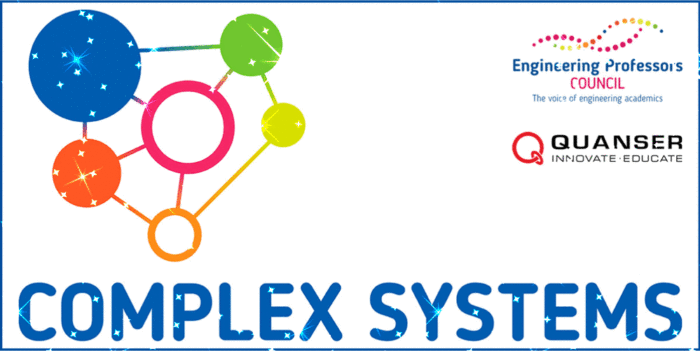A recent roundtable hosted by the Engineering Professors’ Council (EPC), chaired by Jonathan Seville for the Engineering Council, brought together leading voices from academia to discuss a review he is leading into professional registration and the persistent challenges and opportunities that surround it.
The discussion was held under ‘Chatham House Rules’ (comments may be reported, but not attributed, except in this case, the chair’s) and it explored the importance of registration, the reasons behind low uptake, and the steps needed to make professional recognition more accessible and meaningful.
The value and challenge of registration
Professional registration is widely regarded as a mark of competence and commitment within the engineering profession. It serves not only as a personal credential but also as a safeguard for public interest, ensuring that those responsible for critical infrastructure and innovation are both qualified and ethically committed.
Yet, as Prof Seville noted in his introduction, the proportion of engineers who are registered remains “embarrassingly small” — likely below 10%, regardless of how broadly one defines the engineering workforce. The gap is especially pronounced among technicians.
The roundtable explored several possible reasons for this low uptake. Questions were raised about whether the current registration titles — such as Chartered Engineer (CEng), Incorporated Engineer (IEng), Engineering Technician (EngTech) and ICT Technician (ICTTech) — adequately reflect the diversity of engineering roles today. Complexity, lack of understanding, insufficient marketing and perceived irrelevance to modern industry were all cited as potential barriers.
Historical context and the power of titles
The discussion acknowledged the historical evolution of registration standards, including the introduction of UK-SPEC, which sets benchmarks for professional engineering competence. Despite these efforts, confusion persists among the public and even within the profession about what titles like Chartered Engineer truly signify.
The suggestion was made that incorporating the term “professional engineer” into titles could help clarify and elevate the status of registered engineers, though historical constraints have limited this approach.
Inclusion, gender and the myth of a Golden Age
Participants reflected on the journey toward greater inclusion in engineering, particularly for women. The narrative that there was ever a “golden age” of professional registration was challenged, with evidence showing that representation and professionalisation have been ongoing struggles for a century. The need for solutions that address persistent barriers, rather than nostalgia for a bygone era, was emphasised.
International perspectives and student motivation
Comparisons with other countries highlighted the differing perceptions of engineering as a profession.
In some regions, engineers enjoy higher status and recognition, sometimes linked to ceremonial traditions such as Canada’s “iron ring” ceremony. This rite of passage, which symbolises a commitment to ethics and professionalism at graduation, was cited as a powerful motivator and a potential model for the UK. The ceremony’s ability to foster camaraderie and pride among engineers was contrasted with the UK’s more fragmented approach.
The question about whether engineering should adopt something akin to the Hippocratic Oath in Medicine has been raised previously in EPC discussions and beyond. There are several models for what form such an oath might take.
Barriers in academia: costs, recognition and mentorship
A recurring theme was the difficulty of achieving professional registration within academia. The costs associated with registration are often not covered by university employers, making it a non-essential financial burden for individuals. Moreover, the value proposition for academics is unclear, as career advancement is typically tied to research output rather than professional recognition. This has led to challenges in meeting accreditation requirements, such as having a sufficient proportion of chartered staff on engineering courses.
Mentorship and early engagement were identified as critical factors in supporting students and staff on the path to registration. Industry often provides structured support and incentives, while academia lags behind. The disconnect between industry and academic pathways was described as a “ludicrous situation”, with calls for better communication and education about the benefits and processes of registration.
There was discussion around the need to an academic pathway to registration. Even with other barriers removed, many engineering academics might find that their record of teaching and research does not align neatly with the requirements for professional registration. Even if the argument for equivalence to engineers in industry can be made, the need to make it creates both an obstacle and the impression that registration is not really intended for academic engineers.
Marketing engineering and societal value
The need to market engineering as a professional endeavour — to students, policymakers and the public — was stressed repeatedly. Participants argued that society must understand professional engineering as a distinct career from people who repair washing machines and the like, who are often also referred to as engineers. That recognition should reflect and support the broader contribution of engineers to the world.
Pathways, policy and institutional incentives
The roundtable considered the potential for more gradual, incremental pathways to registration, making the process less daunting and more accessible. Ideas included pre-registration gateways for students and experiential routes for career changers. The importance of role models — particularly academic staff who are registered engineers — was highlighted as essential for inspiring students and expanding the pool of future engineers.
Policy incentives were also discussed, with examples from other countries where professional registration is a criterion for academic promotion. The suggestion was made that UK universities and professional institutions should place greater emphasis on professional recognition as part of career progression.
The role of professional engineering institutions
Professional engineering institutions (PEIs) were urged to become more proactive in engaging with universities and applicants, simplifying the registration process, and clearly communicating the benefits. The complexity and conservatism of current procedures were seen as significant deterrents, particularly for those outside traditional industry roles.
Looking ahead: recommendations and next steps
As the discussion drew to a close, Jonathan Seville expressed a desire to move the subject forward with recommendations to the Engineering Council. The roundtable’s insights will inform a forthcoming report, aiming to address longstanding issues and propose actionable steps to enhance professional registration in engineering.
The EPC roundtable underscored that while the challenges of professional registration are complex and deeply rooted, there is a shared commitment to making meaningful progress. By rethinking pathways, incentives, and the societal narrative around engineering, the profession can better recognise and support those who build the future.




